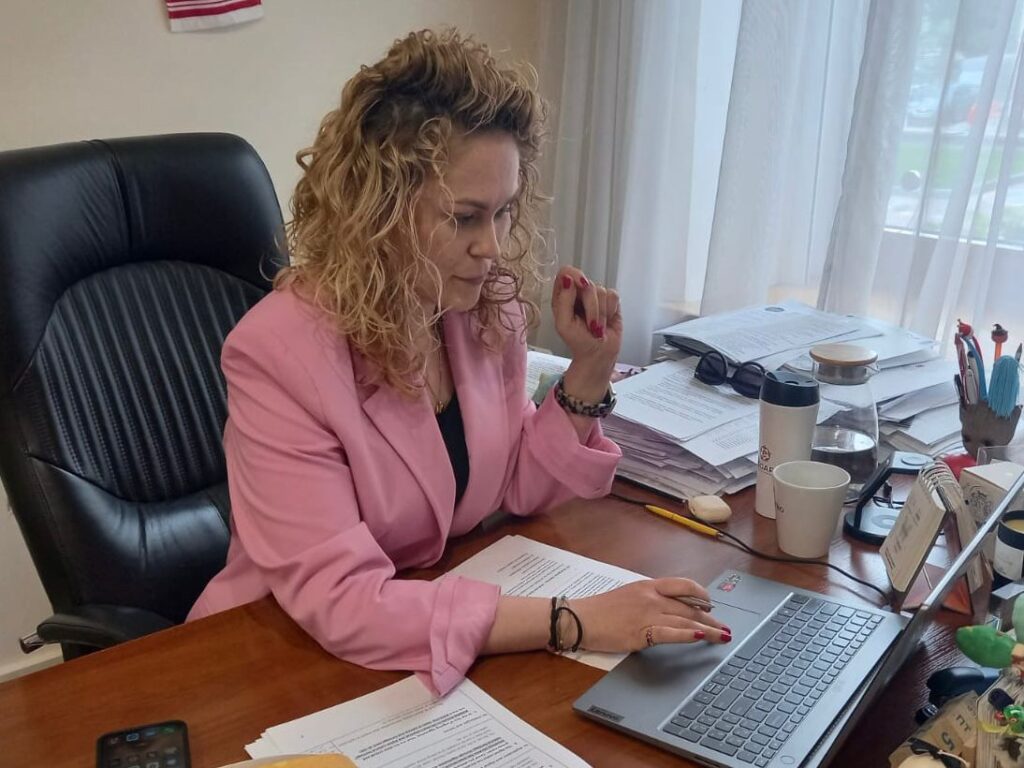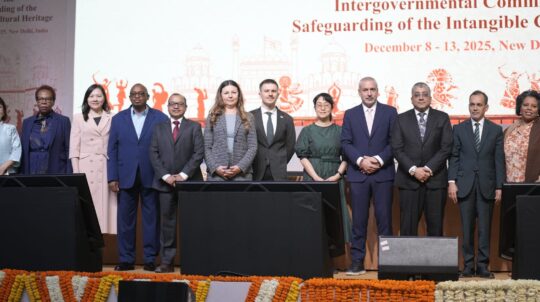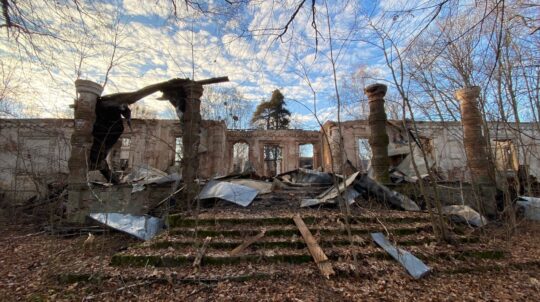On June 11, Anastasia Bondar, Deputy Minister of Culture and Strategic Communications of Ukraine for Digital Development, Digital Transformations, and Digitalization, spoke at the Europeana 2025 Policy Forum held in Warsaw.

The Forum brought together over a thousand participants from across the EU and beyond — including policymakers, cultural leaders, researchers, and experts in digital technology and cultural heritage.
During the panel “Preserving cultural heritage: Protecting at risk heritage and enhancing data security”, Anastasia Bondar joined an online discussion with Sofie Taes, head of the Europeana group supporting Ukraine’s digital cultural heritage. She shared Ukraine’s experience in protecting, preserving, and digitizing cultural heritage during the ongoing war.
Anastasia Bondar emphasized that culture and heritage matter more than ever during wartime. They are not just part of national identity — they help keep society strong.
“In times of crisis, culture is not a luxury. It’s the foundation of resilience, identity, and independence. The destruction of our heritage is an attempt to erase our memory and our history”, she said.
As of May 2025, more than 1,480 cultural sites have been damaged due to russian aggression. Over 500,000 museum items have been evacuated, while another 1.7 million remain in temporarily occupied areas.
Anastasia Bondar highlighted the importance of digital tools — especially unified online registries for historic buildings and museum collections, which already include tens of thousands of entries. These systems help the government manage heritage objects better, make transparent decisions, and improve evacuation and preservation planning.
She also underlined the key role of international support — from governments, global partners, and community initiatives that quickly provided packing materials, equipment, and transport.
“Digitizing heritage during war is not just about saving memory. It’s a form of cultural resistance. It protects our identity from being erased”, added the Deputy Minister.
She closed her speech by calling on international partners to keep supporting Ukraine, launch joint projects, and help strengthen the global presence of Ukrainian culture — reminding everyone that Ukrainian culture is an essential part of Europe’s shared heritage.
The Forum was held under the Polish Presidency of the EU Council, in partnership with the Ministry of Culture and National Heritage of Poland, the National Institute of Cultural Heritage, and the POLIN Museum of the History of Polish Jews in Poland.

